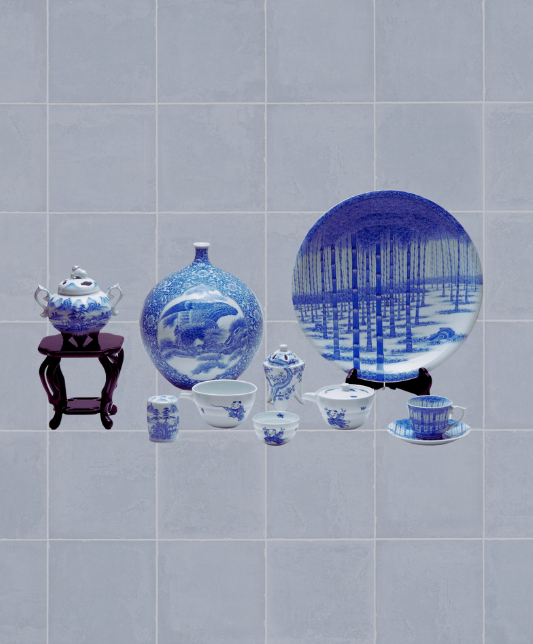Ceramic
The ceramic industry encompasses the production and manufacturing of non-metallic, inorganic materials that are hardened by heat. This industry includes a wide range of products such as tiles, tableware, sanitary ware, decorative ceramics, technical ceramics, and advanced ceramics used in various applications. Traditional ceramics, made from clay, silica, and feldspar, are commonly used in household and architectural products. Meanwhile, advanced ceramics involve materials like alumina, silicon carbide, and zirconia, which are integral to high-tech fields including electronics, aerospace, and medical devices due to their exceptional heat resistance, hardness, and electrical properties. The industry combines both age-old techniques and cutting-edge technologies, reflecting a blend of artistry and engineering.

What problem facing tracking salesperson
Tracking sales personnel effectively in the Fast-Moving Consumer Goods (FMCG) industry can be particularly challenging due to several factors inherent in the sector’s nature and operations. Here are some of the key issues companies face in managing and monitoring their sales force:
Product Complexity and Variety
The ceramic industry offers a wide array of products, from basic building materials like tiles and bricks to sophisticated ceramic components for electronic devices. Salespersons need to understand the specific uses and benefits of a diverse product range, making tracking of their product knowledge and expertise crucial.
Geographical Spread
Often, the sales territory in the ceramic industry is vast due to the wide usage of ceramic products in both urban and rural settings. Tracking the movements and efficiency of salespersons across such large areas can be logistically challenging.
Customer Diversity
Salespersons in the ceramic industry deal with a diverse clientele that includes homeowners, architects, builders, retailers, and industrial purchasers. Each group has distinct needs and buying processes. Monitoring how salespersons manage and prioritize these different customer segments can be difficult.
Regulation and Compliance
Certain types of ceramic products, especially those used in construction and healthcare, must meet specific regulatory standards. Ensuring that salespersons are consistently compliant and up-to-date with these regulations is a significant challenge.
Technical Sales Process
Selling advanced ceramic products is highly technical and often requires significant expertise. Tracking whether salespersons possess the necessary technical knowledge and whether they are effectively conveying this information to potential clients is essential.
Long Sales Cycles
The sales cycle in the ceramic industry can be lengthy, particularly for high-value or custom products. This prolongs the time between initial customer contact and final sales, complicating the tracking of sales progress and forecasting.
Inventory Management
Given the variety and size of ceramic products, inventory management becomes crucial. Salespersons must have real-time information about product availability to effectively close sales, requiring robust systems for tracking inventory levels.
Data Management
Effective tracking requires reliable data collection and management systems. Salespersons must accurately record details about customer interactions, sales transactions, and market feedback. Ensuring the integrity and accessibility of this data can be a technical and organizational hurdle.
How to solve those problems
Advanced CRM Systems
Implement a robust Customer Relationship Management (CRM) system to manage customer data, track sales progress across different segments, and monitor interactions with diverse clients. This system should allow for detailed reports and analytics to guide sales strategies.
Mobile Technology and GPS
Equip salespersons with mobile devices that have GPS tracking and access to real-time data. This can help manage their routes efficiently, ensure they are covering the assigned territories, and maintain constant communication with the central office.
Training and Development
Regular training sessions should be conducted to keep salespersons updated on product knowledge, technical details, and regulatory compliance. Utilizing e-learning platforms can allow sales teams to access training remotely and at their convenience.
Performance Monitoring Tools
Implement performance monitoring tools that integrate with CRM systems to track sales activities, customer feedback, and sales outcomes. These tools should help in setting clear performance indicators and benchmarks for evaluation.
Real-Time Inventory Management Systems
Utilize an inventory management system that provides real-time data to salespersons about stock levels, product specifications, and delivery times. This can help them manage customer expectations and close sales efficiently.
Data Integration and Analytics
Ensure all systems used by the sales team, such as CRM, inventory management, and performance monitoring, are integrated. Use data analytics to draw insights from the collected data to improve sales strategies and customer engagement tactics.
Enhanced Communication Tools
Employ collaborative tools that facilitate seamless communication within the team and with other departments. Tools like instant messaging, video conferencing, and shared documents can improve coordination and response times.
Feedback Mechanisms
Implement structured feedback mechanisms to collect insights from customers and front-line sales staff. This feedback should be analyzed regularly to adapt product offerings and sales tactics.
Compliance Tracking
Develop a system to continuously monitor and report on regulatory compliance, ensuring that all sales activities adhere to industry standards and legal requirements.
